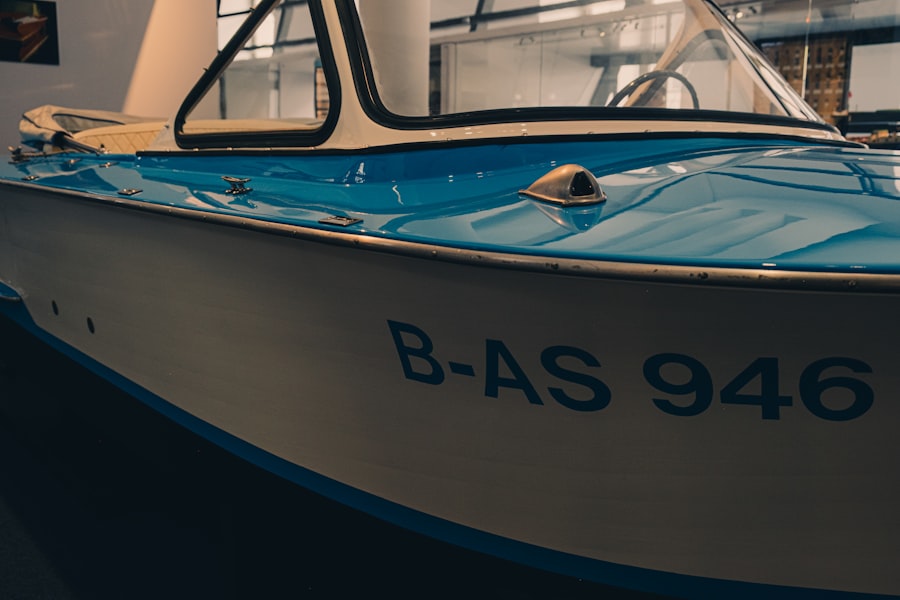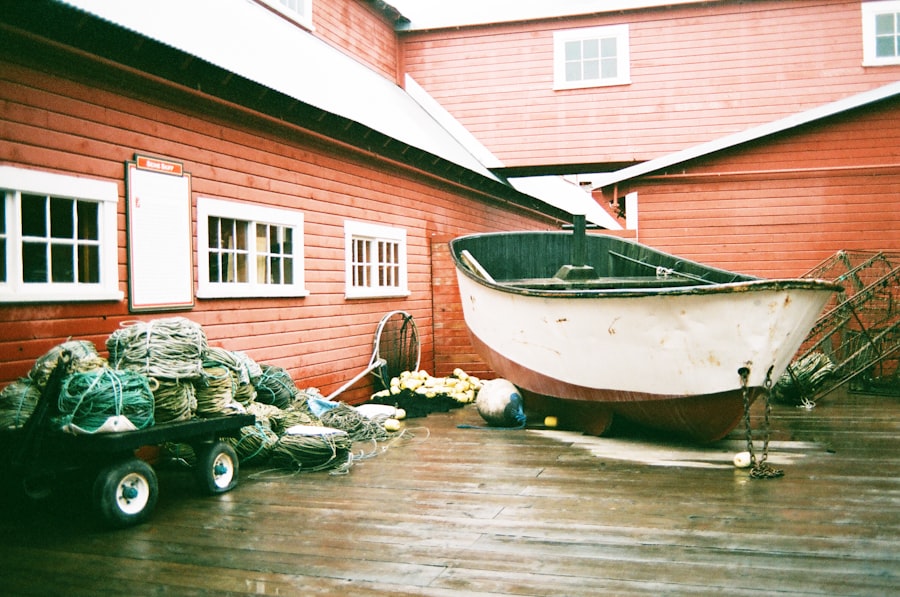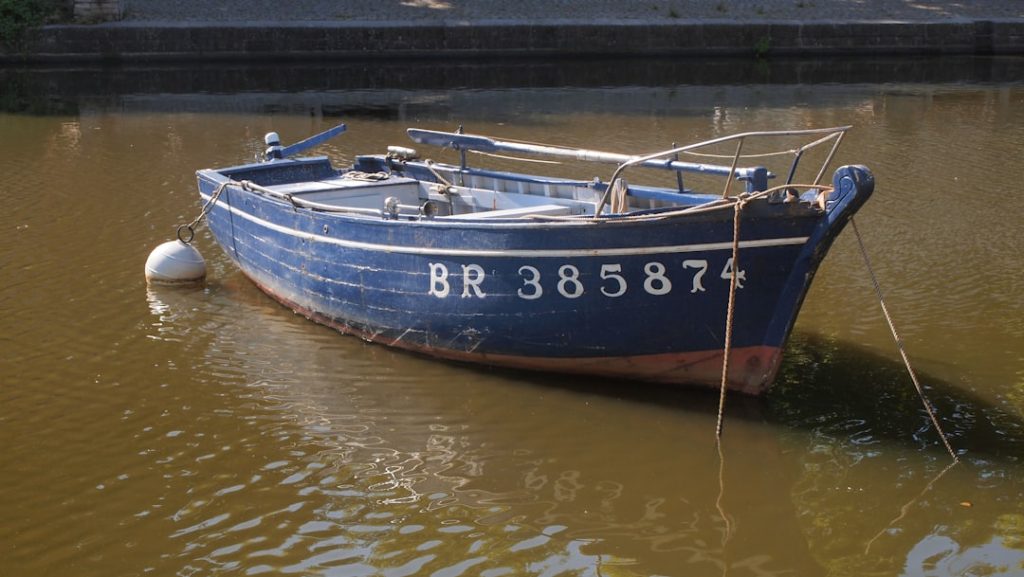Boat auctions have emerged as a popular avenue for both seasoned mariners and novice boaters looking to acquire vessels at competitive prices. These auctions can take various forms, from live events held at marinas to online platforms that allow bidders to participate from the comfort of their homes. The allure of boat auctions lies in the potential for significant savings, as boats are often sold at prices below their market value.
This can be particularly appealing in a market where new boats can carry hefty price tags, making auctions an attractive alternative for those seeking quality without the premium cost. The auction environment is dynamic and can be exhilarating, with bidders vying for their desired vessels amidst a backdrop of excitement and anticipation. However, the process is not without its complexities.
Understanding the nuances of boat auctions is crucial for anyone looking to navigate this landscape successfully. From knowing where to find these auctions to grasping the intricacies of bidding strategies, prospective buyers must equip themselves with knowledge to make informed decisions. This article delves into the various aspects of boat auctions, providing insights that can help bidders maximize their chances of success.
Key Takeaways
- Boat auctions offer a variety of vessels, from sailboats to motorboats, often at competitive prices.
- Finding auctions can be done through online platforms, local marinas, and auction houses.
- Bidders should research boats thoroughly and set a budget to avoid overspending.
- Understanding the auction process, including registration and bidding rules, is crucial for success.
- Inspecting boats carefully and accounting for hidden costs like fees and repairs can prevent unexpected expenses.
How to Find Boat Auctions
Finding boat auctions requires a combination of research and networking. One of the most effective ways to discover upcoming auctions is through online platforms dedicated to marine sales. Websites such as BoatAuction.com and eBay Motors often feature listings for boats being auctioned off, allowing users to filter by type, location, and price range.
These platforms not only provide a wide array of options but also offer user reviews and ratings that can help gauge the reliability of sellers. In addition to online resources, local marinas and yacht clubs frequently host boat auctions, especially during the spring and summer months when boating activity peaks. Attending these events can provide firsthand experience of the auction process and allow potential buyers to interact directly with sellers.
Networking within boating communities, whether through social media groups or local meetups, can also yield valuable information about upcoming auctions. Many enthusiasts share tips and leads on where to find the best deals, making community engagement an essential part of the search process.
Tips for Bidding at Boat Auctions

Bidding at boat auctions requires a strategic approach to ensure that you do not overextend your budget while still securing a desirable vessel. One of the most critical tips is to establish a clear budget before entering the auction. This budget should encompass not only the maximum bid you are willing to place but also any additional costs associated with purchasing a boat, such as registration fees or transportation expenses.
Sticking to this budget is vital; emotional bidding can lead to overspending and buyer’s remorse. Another essential tip is to familiarize yourself with the auction format and rules beforehand. Different auctions may have varying procedures regarding bidding increments, reserve prices, and payment methods.
Understanding these details can give you an edge over other bidders who may be less informed. Additionally, it is wise to observe a few rounds of bidding before placing your own bids. This observation period allows you to gauge the competition and adjust your strategy accordingly, whether that means waiting for a lull in bidding or jumping in early to assert your interest.
Types of Boats Available at Auctions
| Type of Boat | Common Length (ft) | Typical Auction Price Range | Popular Uses | Condition at Auction |
|---|---|---|---|---|
| Fishing Boats | 15 – 30 | 1,000 – 15,000 | Recreational and commercial fishing | Used, some refurbished |
| Sailboats | 20 – 50 | 2,000 – 40,000 | Leisure sailing, racing | Varies from project boats to well-maintained |
| Speedboats | 18 – 35 | 3,000 – 30,000 | Water sports, cruising | Mostly used, some with engine issues |
| Houseboats | 30 – 60 | 10,000 – 100,000 | Living, vacationing on water | Often well-maintained, some need repairs |
| Yachts | 40 – 100+ | 20,000 – 500,000+ | Luxury cruising, entertainment | Wide range from fixer-uppers to pristine |
| Kayaks & Canoes | 8 – 16 | 200 – 2,000 | Recreational paddling | Mostly good condition |
| Jet Boats | 15 – 25 | 2,000 – 20,000 | Water sports, shallow water navigation | Used, some engine maintenance needed |
Boat auctions offer a diverse range of vessels catering to various interests and budgets. From small sailboats ideal for leisurely weekend outings to larger yachts designed for extended voyages, there is something for everyone. Powerboats are also prevalent at auctions, including fishing boats, speedboats, and cruisers that appeal to different types of water enthusiasts.
Each category presents unique features and specifications that can influence bidding behavior. In addition to recreational boats, auctions may also feature commercial vessels such as fishing trawlers or tugboats. These boats often come with their own set of considerations, including compliance with maritime regulations and potential maintenance needs.
Buyers should be aware that while commercial vessels may offer great value, they may also require more extensive inspections and evaluations due to their operational history. Understanding the types of boats available at auction helps bidders align their preferences with their budget and intended use.
Understanding the Auction Process
The auction process itself can vary significantly depending on whether it is conducted live or online. In a live auction setting, participants gather in person, often at a designated location such as a marina or auction house. The auctioneer typically opens with an introductory statement about the boats available, followed by a detailed description of each vessel as it comes up for bid.
Bidders raise their paddles or call out bids until the highest bid is reached, at which point the auctioneer declares the boat sold. Online auctions operate differently but share similar principles. Bidders register on a website and place bids within a specified timeframe.
Many online platforms employ proxy bidding systems that automatically increase your bid incrementally up to your maximum limit if another bidder places a higher offer. This feature allows bidders to remain competitive without constantly monitoring the auction in real-time. Regardless of the format, understanding how bids are placed and how the auctioneer operates is crucial for effective participation.
Hidden Costs to Consider

While boat auctions can present opportunities for significant savings, prospective buyers must be vigilant about hidden costs that can quickly add up. One common expense is the buyer’s premium, which is an additional fee charged by the auction house on top of the final bid price. This fee typically ranges from 5% to 10% and can substantially increase the total cost of acquiring a boat.
Other hidden costs may include transportation fees if you need to move the boat from the auction site to your home or marina. Additionally, buyers should consider registration fees, insurance costs, and potential repairs or upgrades needed after purchase. It is essential to conduct thorough research on these expenses before bidding to avoid any unpleasant surprises that could strain your budget post-purchase.
Inspection and Evaluation of Boats
Before placing a bid on any boat at an auction, conducting a thorough inspection is paramount. Many auctions allow potential buyers to inspect vessels prior to bidding day; taking advantage of this opportunity can provide invaluable insights into the condition of the boat. Key areas to focus on during an inspection include the hull integrity, engine performance, electrical systems, and overall cleanliness.
A comprehensive evaluation can help identify any red flags that may warrant caution or further investigation. In some cases, hiring a marine surveyor can be beneficial for buyers who may not have extensive knowledge about boats. A surveyor can provide an expert assessment of the vessel’s condition and highlight any potential issues that could affect its value or safety.
This professional evaluation can serve as a powerful negotiating tool during bidding, especially if significant repairs are needed. Ultimately, thorough inspections and evaluations are critical steps in ensuring that you make an informed purchase at an auction.
Successful Strategies for Winning Bids
Winning bids at boat auctions often comes down to employing effective strategies that balance assertiveness with caution. One successful approach is to establish a bidding plan that outlines your maximum bid for each vessel you are interested in. This plan should take into account your budget as well as any insights gained from inspections or evaluations.
By having a clear strategy in place, you can avoid impulsive decisions driven by excitement during the auction. Another effective strategy is to remain calm and composed throughout the bidding process. Emotional reactions can lead to hasty decisions that may not align with your initial goals.
Observing other bidders’ behaviors can also provide valuable insights; if you notice someone consistently raising their bids aggressively, it may be wise to hold back until they tire out or lose interest in a particular vessel. Additionally, consider timing your bids strategically—placing a bid just before the auction closes can create urgency among other bidders and potentially secure you a win at a lower price. In conclusion, navigating boat auctions requires careful preparation and strategic thinking.
By understanding how to find auctions, what types of boats are available, and how to effectively participate in the bidding process while considering hidden costs and conducting thorough inspections, prospective buyers can enhance their chances of successfully acquiring their desired vessel at an attractive price point.


